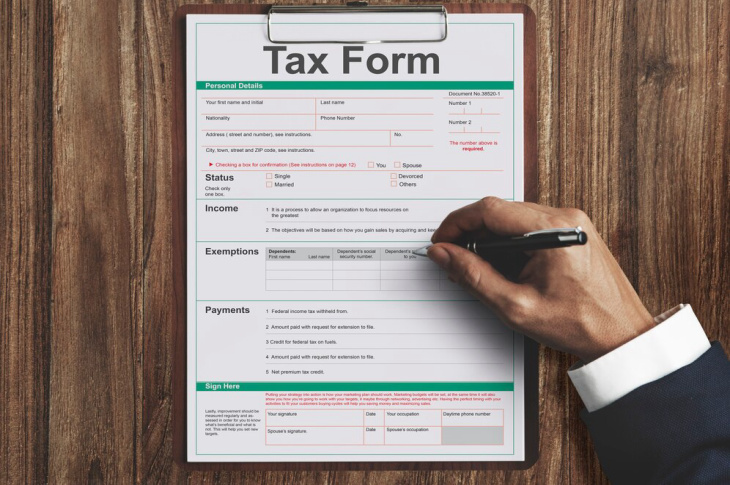Form 16 Here Is About Tax Deducted At Source
Introduction
Taxation is a vital aspect of every working individual's life. In India, taxes are deducted at the source, commonly referred to as TDS (Tax Deducted at Source). Form 16 is a document that plays a pivotal role in this process. Whether you're an employee or an employer, comprehending Form 16 is essential for adhering to tax regulations. In this detailed guide, we'll delve into what Form 16 entails, its significance, components, and how to utilize it effectively.
What is Form 16?
Form 16 is a certificate issued by employers to their employees, providing information about the salary earned by the employee and the taxes deducted from it during the financial year. Essentially, it serves as proof that TDS has been deducted and deposited with the Income Tax Department on behalf of the employee.
Significance of Form 16
Form 16 holds significant importance for both employees and employers. For employees, it is crucial for filing income tax returns as it provides a comprehensive summary of the income earned and the taxes paid, facilitating a smoother and more accurate filing process. For employers, issuing Form 16 is a legal obligation to ensure transparency and accountability in tax deductions made on behalf of employees.
Components of Form 16
Form 16 comprises several components, each providing essential information about the employee's income and tax deductions.
Part A: Contains details of the employer and employee, including their names, addresses, and Permanent Account Number (PAN). It also includes the employer's Tax Deduction and Collection Account Number (TAN) and the period of employment.
Part B: Is a detailed annexure that provides a comprehensive breakup of the employee's salary, allowances, and deductions, including gross salary, allowances exempt under section 10, deductions under section 16, professional tax, and net salary.
Part B1: Contains details of the tax deducted by the employer and deposited with the government on behalf of the employee, including tax deducted at source (TDS) on salary, education cess, surcharge (if applicable), and total tax deposited.
Understanding Tax Deducted at Source (TDS)
Tax Deducted at Source (TDS) is a mechanism through which the government collects taxes at the time of income generation. Employers deduct TDS from the salary of employees based on their income tax slab rates and deposit it with the government on their behalf. The purpose of TDS is to ensure a steady stream of revenue for the government and prevent tax evasion.
How to Utilize Form 16
Now that we understand the components of Form 16 and the concept of TDS, let's explore how to effectively utilize Form 16.
Filing Income Tax Returns: Form 16 serves as a primary document for filing income tax returns. Employees can use the information provided in Form 16 to accurately report their income and claim deductions while filing returns.
Verification of TDS: Form 16 enables employees to verify whether the TDS deducted by their employer matches the actual tax liability calculated based on their income. Any discrepancies can be rectified before filing tax returns.
Claiming Refunds: In case excess TDS has been deducted, employees can claim a refund while filing their tax returns. Form 16 provides the necessary details to support refund claims.
Loan Applications: Form 16 is often required when applying for loans or credit cards. Lenders may request Form 16 as proof of income to assess the creditworthiness of the applicant.
Conclusion
Form 16 plays a crucial role in the income tax ecosystem of India. It not only serves as proof of TDS deductions but also empowers employees to fulfill their tax obligations accurately. By understanding the components and significance of Form 16, individuals can ensure compliance with tax regulations and streamline the process of filing income tax returns. Remember, accurate reporting and timely compliance are key to a hassle-free tax filing experience.
FAQs About Form 16 and Tax Deducted at Source
1. Is Form 16 necessary for filing income tax returns?
Yes, Form 16 is crucial for filing income tax returns as it provides essential information about income earned and taxes deducted.
2. What should I do if I haven't received Form 16 from my employer?
If you haven't received Form 16, promptly contact your HR or finance department as employers are legally obligated to provide it.
3. Can I file my income tax returns without Form 16?
While Form 16 simplifies the process, you can file returns using alternative documents like salary slips and Form 26AS.
4. How can I verify the accuracy of the TDS mentioned in Form 16?
Compare the TDS with your salary statements. Discrepancies should be reported to your employer for rectification.
5. What should I do if there are discrepancies in my Form 16?
Inform your employer immediately. They can rectify errors and issue a corrected Form 16.
6. Can I claim a refund if excess TDS has been deducted?
Yes, excess TDS can be claimed as a refund while filing tax returns.
7. Is it mandatory for employers to issue Form 16 to employees?
- Yes, employers are legally obligated to provide Form 16 to employees.
8. Can I use Form 16 for applying for loans or credit cards?
Yes, Form 16 can be used as proof of income for loan or credit card applications.
9. Are there specific sections of Form 16 I should pay attention to?
Focus on Part B and Part B1, containing detailed salary, allowance, deduction, and TDS information.
10. What should I do if I lose my Form 16? - Request a duplicate from your employer or download it from the TRACES website managed by the Income Tax Department.
Trending



Ask a Lawyer